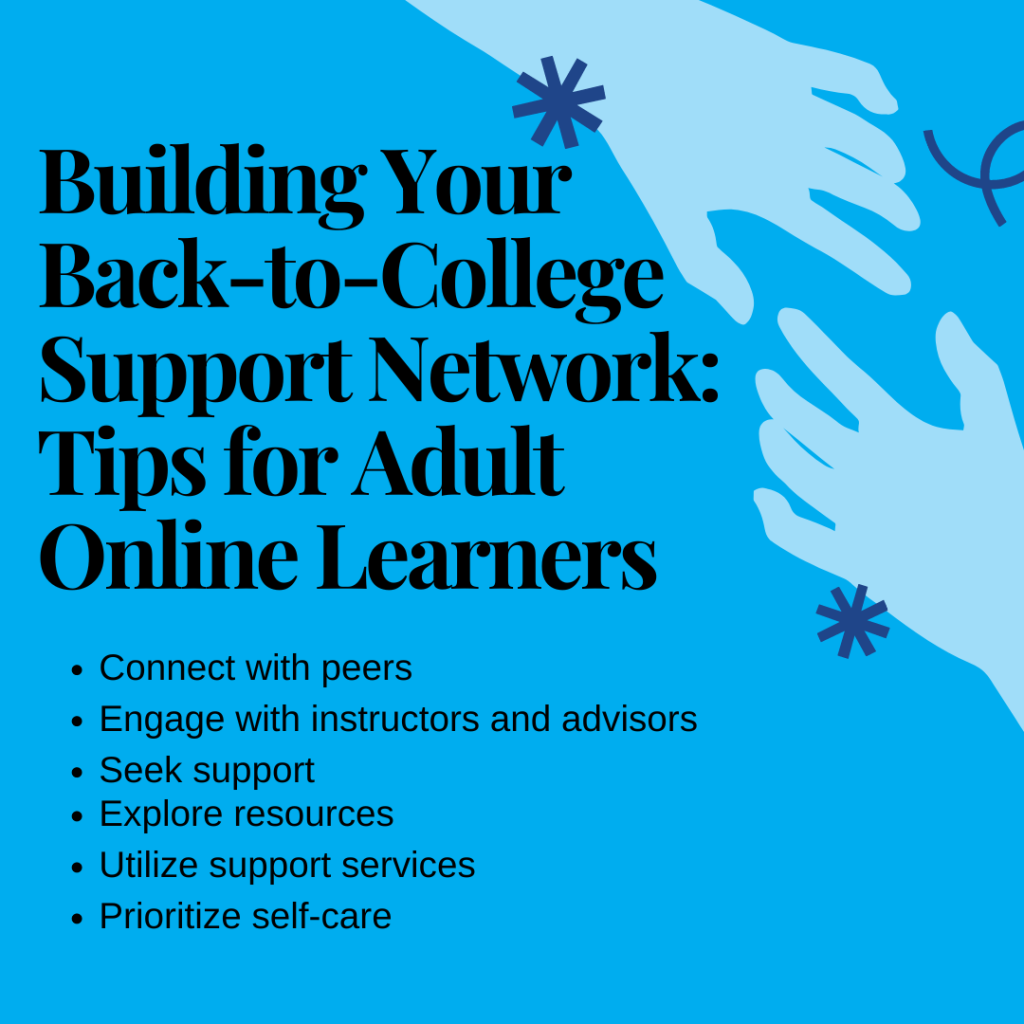Returning to college as an adult can be both exciting and daunting. Whether you’re pursuing further education to advance your career, fulfill a personal goal, or explore new passions, having a strong support system in place can make all the difference in your success and well-being. As an adult learner enrolled in an online college program, creating a support network tailored to your unique needs is crucial for navigating the challenges and maximizing the opportunities of your educational journey. Here are some practical strategies for building a robust support system as you prepare to go back to school.
1. Connect with Peers in Your Program: One of the first steps in creating a support system as an online adult learner is to connect with your peers in your program. Aspen University has a Network on LinkedIn where students can connect and engage with each other. Take advantage of this opportunity to connect with fellow adult learners who share similar goals and experiences. Be active on your classroom discussion boards and sign up to join a peer study group to build meaningful connections and mutual support.
2. Engage with Your Instructors and Advisors: Establishing a rapport with your instructors and academic advisor is essential for receiving guidance and support throughout your college journey. Introduce yourself early on and make an effort to communicate regularly with them. Seek their feedback on assignments, ask questions about course material, and discuss your academic goals and aspirations. Your instructors and advisors can offer valuable insights, resources, and encouragement to help you succeed. You can make an appointment to meet with your academic advisor via the Contact Information links on the Student Success webpage.
3. Seek Support from Friends and Family: Don’t underestimate the power of support from your friends and family members as you navigate your return to college. Share your educational goals and aspirations with your loved ones, and enlist their encouragement and assistance when needed. Communicate openly about your commitments and priorities, and establish realistic expectations for how they can support you in your academic endeavors. Whether it’s providing childcare, offering words of encouragement, or simply lending a listening ear, their support can be invaluable.
4. Explore Online Communities and Resources: In addition to connecting with peers and instructors within your college program, consider exploring online communities and resources specifically tailored to adult learners. Look for forums, like Aspen’s Altitude blog, social media groups, and online platforms dedicated to adult education, distance learning, and non-traditional students. These communities can provide a wealth of information, advice, and camaraderie as you navigate the challenges of returning to college as an adult.
5. Utilize Support Services Offered by Your College: Take advantage of the support services and resources offered by your online college. Whether it’s academic advising, library services, the Student Success website, or the Student Resource Center in the online D2L classroom, these services are designed to assist you in achieving your academic goals. Familiarize yourself with the available resources and don’t hesitate to reach out for assistance when needed. Your college’s support staff are there to help you succeed and overcome any obstacles you may encounter along the way.
6. Prioritize Self-Care and Well-Being: Lastly, remember to prioritize self-care and well-being as you navigate your return to college as an adult. Balancing the demands of work, family, and academics can be challenging, so it’s essential to make time for rest, relaxation, and activities that recharge your batteries. Practice self-care strategies such as exercise, mindfulness, and hobbies that bring you joy and fulfillment. Set boundaries and ask for help where needed. Taking care of yourself will not only enhance your overall well-being but also improve your ability to succeed academically.
Remember that you’re not alone on this journey, and with the right support system in place, you can achieve your educational goals and transform your future. Your academic advisor is here to offer guidance and support. Reach out to advising@aspen.edu to talk to an advisor!
This post was made in conjunction with Aspen University’s Student Affairs team and AI generation.

